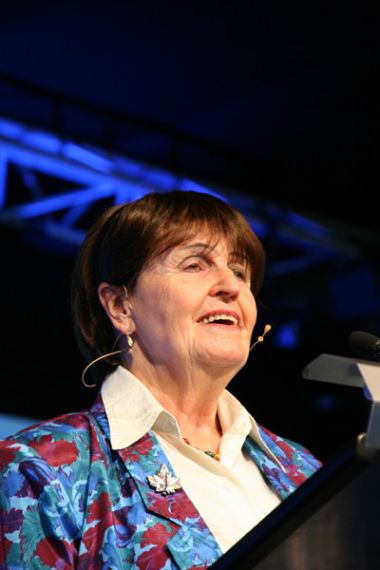Bill to restrict Sharia courts is a 'light at the end of the tunnel' for Muslim women, says Baroness Cox
Muslim women have welcomed the success of a proposed bill demanding that the rights of women be protected in Sharia courts in the UK, according to a Christian member of the House of Lords, Baroness Cox.

Cox's Arbitration and Mediation Services (Equality) Bill, which seeks to restrict the power of Islamic courts in Britain, passed through the House of Lords unammended on the 20 January. It will next be heard in the Commons, where she is confident it will be well received.
Cox's proposals would close a loophole in the Equality Act which allows Sharia law courts operating in Britian to practice sexual discrimination. The legislation would make it illegal for any arbitration tribunal to "do anything that constitutes discrimination, harassment or victimisation on grounds of sex."
According to Cox, there are around 100,000 couples in Britian living in Islamic marriages which are not recognised by English law, leaving them at a legal disadvantage.
Although the bill has been criticised by many British Muslim leaders for being redundant, as Sharia courts already operate within the British legal system, Cox said the proposed legislation is crucial to ensure Sharia court scholars are egalitarian.
"The bill went through unammended from start to finish and we have a lot of people in the Commons who are very keen to run with it [the bill], from both major parties. It has a welcome waiting for it in the commons," the 76-year-old cross-party peer told the International Business Times.
Despite criticism from Muslim leaders who fear the bill will inspire further Islamophobia, Muslim women have expressed their support to Cox.
"After we had the second reading I had phone calls from Muslim women saying thank you. That it was the light at the end of the tunnel for them," she said.
"They said they were trapped but now someone was talking about, and trying to do something."
Cox will meet with the Justice Secretary on February 1 and is confident that the government will take the bill on. But if it does not, there are at least three Labour MPs who are interested in taking it on as a private members bill, she said.
"I hope Michael Gove might be as helpful and might give it some kind of fair wind. I am going to suggest that the government might want to take it over so it is more likely to go through," she said.
"I think it might be helpful for the government [because] it fits the zeitgeist of the times."











